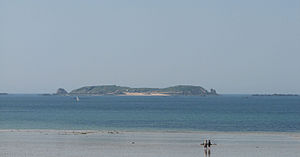hvered:
That's interesting.
There's a fairly full discussion on this site
http://www.eupedia.com/forum/threads/25 ... ed-countryAnd this site gives a map of the michael apollo line for comparison.
http://www.deasol.com/the-apollo-st-mic ... rettyPhotoIn addition to hair colour Bretons are proud of their 'slanting eyes' as well as everything else Breton and non French.
Like most people in Britain I was taught about the fair haired Celts who were deposed by the fair haired Anglo Saxons who were deposed by the fair haired vikings and Danes. Most of the people I knew were rather dark haired and far north of the Michael Apollo line or the St Malo Geneva line.
I found that there seemed to be more fair haired people in the south of England than in the north.
What is stranger is the difference to be seen on the Isle of Lewis. A large proportion of the people there are fair to ginger with usually the pale skin, freckles and quite hefty features associated with most of that group.
The rest have jet black hair, very refined features with grey eyes, often also a bit almond shape.
A friend once said they were vikings, something I found hard to believe although black haired Norwegians do exist.
Perhaps the land locked populations in France would have had difficulty moving out of their native areas as there would always be others to stop them. That may not have been such a problem where people can travel by sea?

